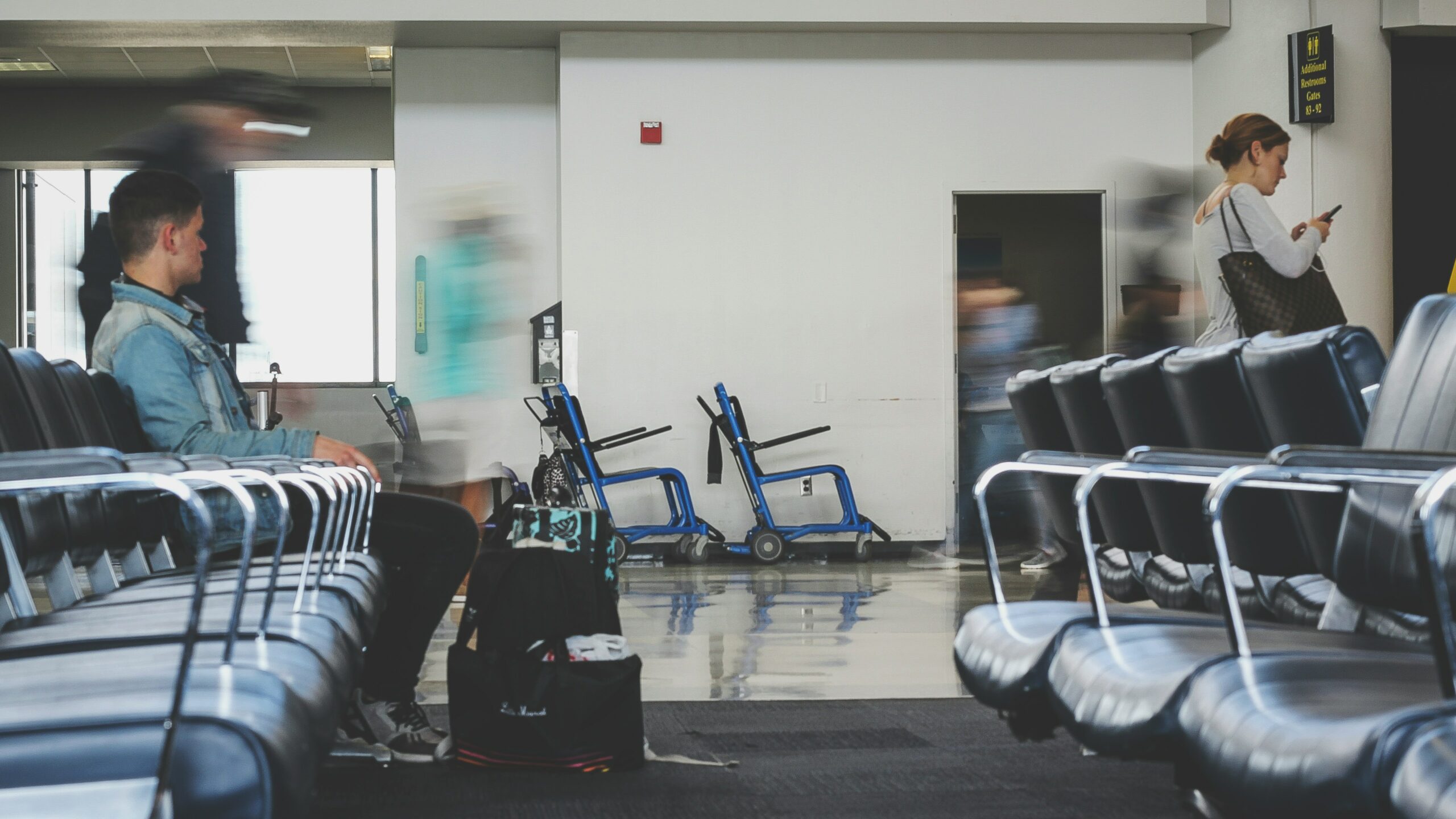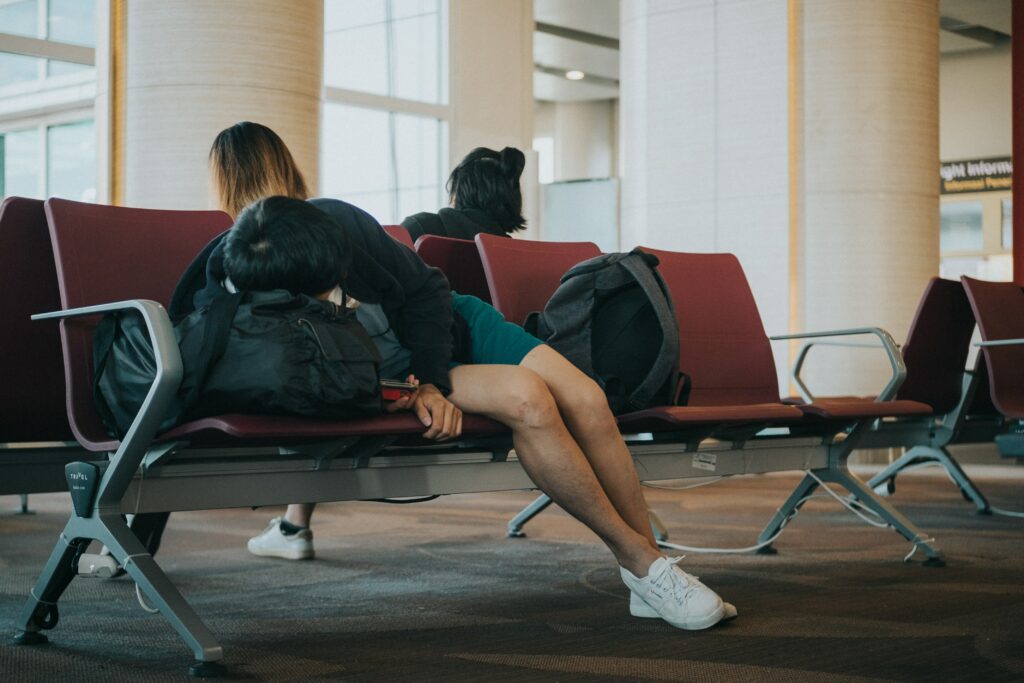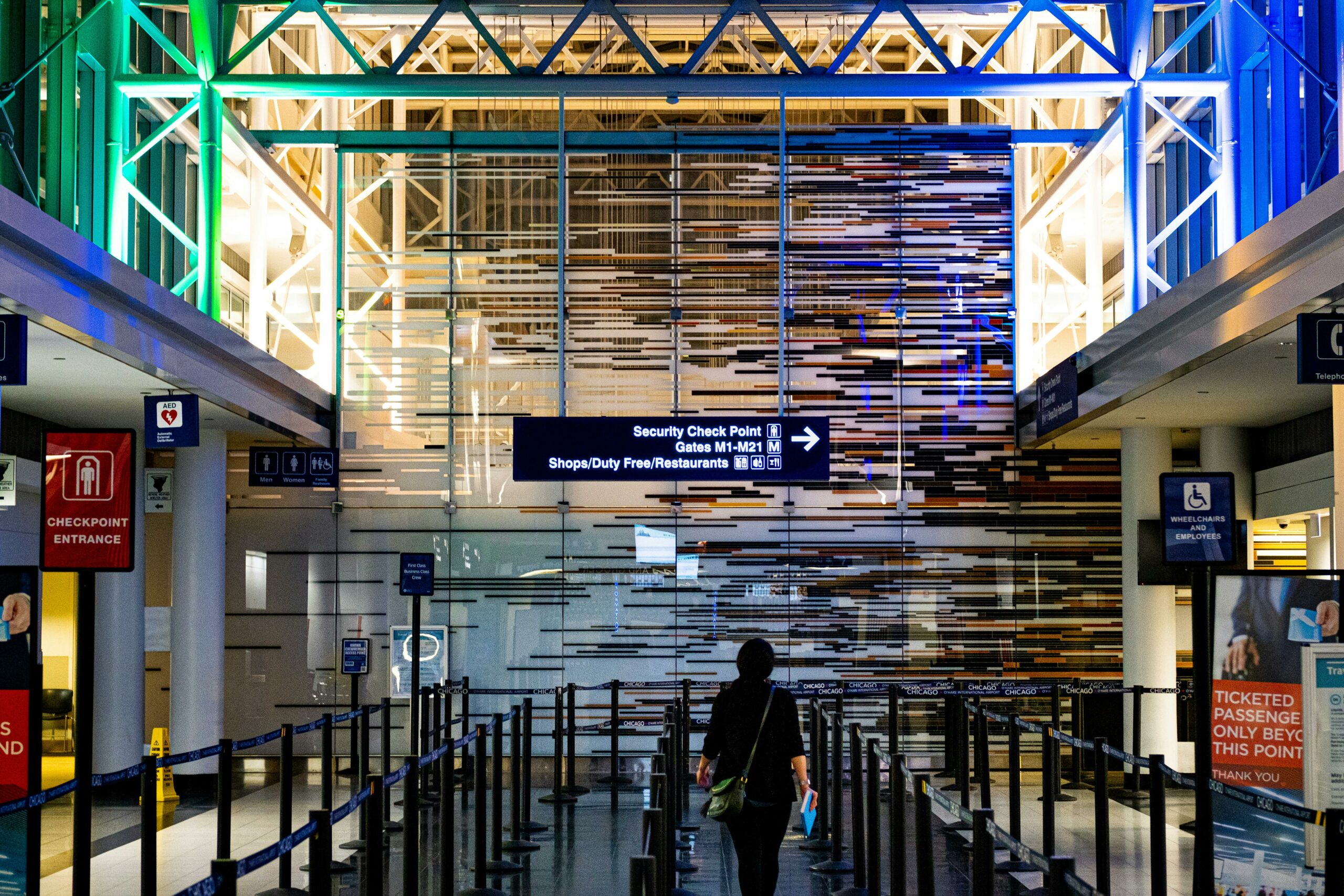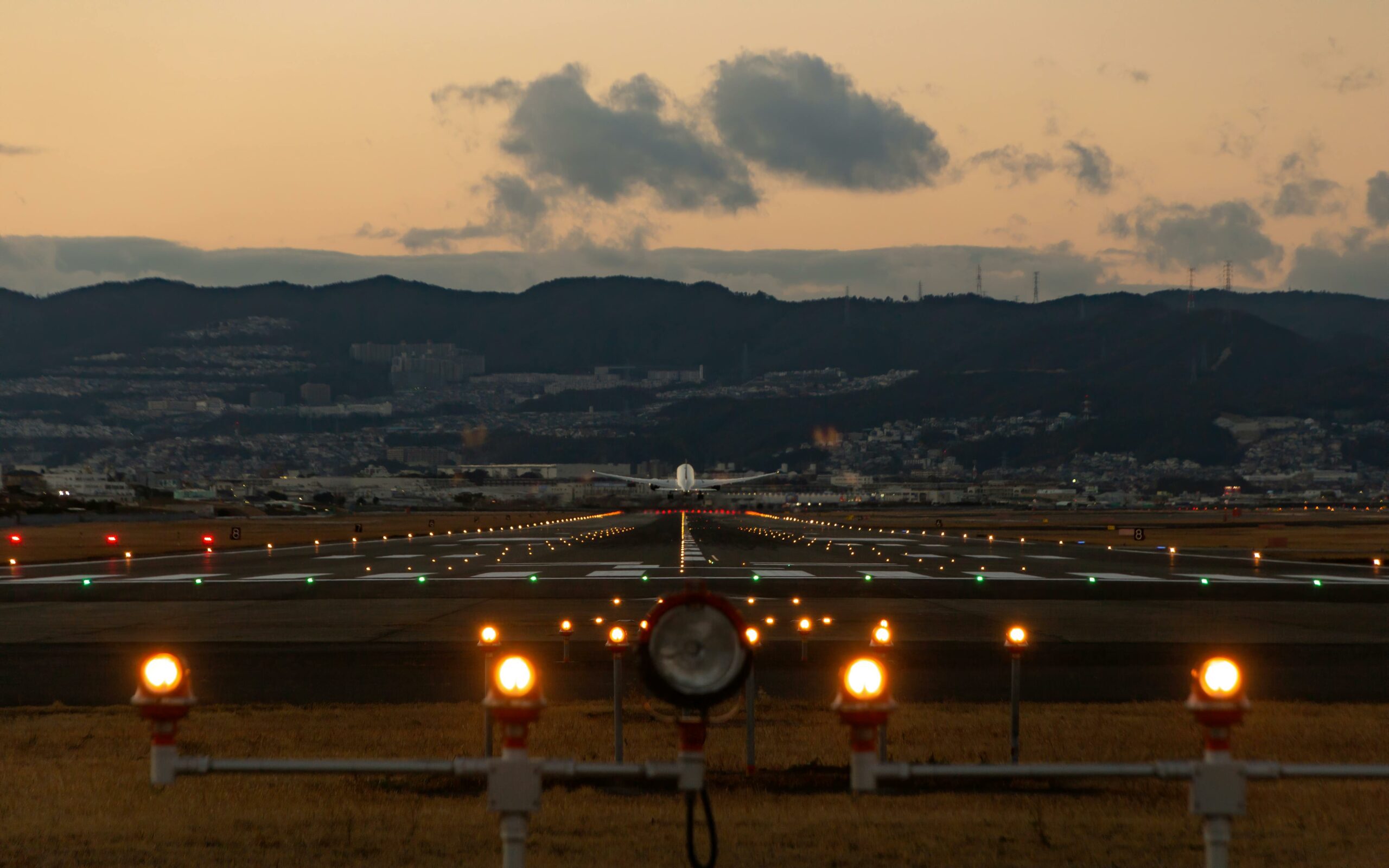Dealing with Jet Lag:
Air Travel and Time Zones

Jet lag is an inevitable consequence of the convenience brought about by air travel, enabling individuals to traverse the globe in a matter of hours. It is a temporary sleep disorder that affects people who travel across different time zones. It can cause fatigue, insomnia, headaches, and other symptoms that can negatively impact a person’s travel experience.
The main cause is the disruption of the body’s circadian rhythm, which is the internal clock that regulates sleep and wake cycles. When a person travels to a different time zone, their body has to adjust to the new schedule, which can take several days. This adjustment process can be challenging, especially for frequent travelers or those who have to travel for business. However, there are several strategies that can help reduce the effects of jet lag and make air travel more comfortable.
Understanding Jet Lag

Jet lag is a temporary sleep disorder that occurs when a person travels across multiple time zones. It happens because the body’s internal clock, also known as the circadian rhythm, is disrupted. The internal clock regulates the sleep-wake cycle, and when it is disrupted, the body struggles to adjust to the new time zone.
Symptoms of jet lag can vary from person to person, but common ones include fatigue, insomnia, irritability, difficulty concentrating, and general malaise. The severity of symptoms can depend on the number of time zones crossed, the direction of travel, and individual factors such as age, health, and sleep habits.
Jet lag disorder is a more severe form that can last for several days or weeks. It can cause significant disruption to a person’s daily life, including work, social activities, and overall well-being.
To help minimize its effects, there are several things that travelers can do. These include adjusting their sleep schedule before travel, staying hydrated, avoiding alcohol and caffeine, and exposing themselves to natural light. Some people also find it helpful to take melatonin supplements, which can help regulate the sleep-wake cycle.
Role of Time Zones in Jet Lag

Traveling to a different time zone can cause jet lag, a temporary sleep disorder that can disrupt one’s normal sleep patterns. The severity of jet lag depends on the direction of travel, with eastward travel typically causing more severe symptoms than westward travel.
The body’s internal clock, also known as the circadian rhythm, is responsible for regulating sleep and wake cycles. When traveling to a different time zone, the body’s internal clock is disrupted, causing symptoms such as fatigue, insomnia, and irritability.
Time zones play a critical role in jet lag because they determine the difference in time between the traveler’s original location and their destination. Crossing multiple time zones can result in a significant time difference, making it difficult for the body to adjust to the new time schedule.
To minimize the effects of jet lag, travelers can take steps such as gradually adjusting their sleep schedule before the trip, staying hydrated, and avoiding alcohol and caffeine. It is also recommended to expose oneself to natural sunlight during the day and avoid bright lights and electronic devices before bedtime.
Physiological Effects of Jet Lag

Jet lag is a common phenomenon experienced by people who travel across multiple time zones. It occurs when the body’s circadian rhythms, which regulate the sleep-wake cycle, are disrupted. The physiological effects of jet lag can vary from person to person, but they generally include sleep disturbances, fatigue, and changes in mood and digestion.
Sleep
One of the most common effects of jet lag is disrupted sleep. The body’s circadian rhythms are regulated by a master clock in the brain, which is responsible for regulating the sleep-wake cycle. When a person travels across multiple time zones, their circadian rhythms are disrupted, which can lead to difficulty falling asleep, waking up during the night, and feeling tired during the day.
Fatigue
Another common effect of jet lag is fatigue. When the body’s circadian rhythms are disrupted, the body’s natural energy levels can be affected. This can lead to feelings of fatigue and lethargy, which can make it difficult to concentrate and perform daily tasks.
Mood
Jet lag can also have an effect on a person’s mood. Studies have shown that people who experience this are more likely to experience mood swings, irritability, and depression. This is thought to be due to the disruption of the body’s natural rhythms, which can affect the production of hormones that regulate mood.
Body Temperature
The body’s core temperature is regulated by the circadian rhythms, and when these rhythms are disrupted, the body’s temperature can fluctuate. This can lead to feelings of hot or cold flashes, and can make it difficult to sleep.
Digestion
The disruption of the body’s natural rhythms can affect the production of digestive enzymes, which can lead to digestive problems such as constipation, diarrhea, and bloating. Dehydration can also be a problem, as people may not be drinking enough fluids while traveling.
Factors Influencing Jet Lag

Jet lag is a common problem for travelers who cross multiple time zones, and it can have a significant impact on their health and well-being. Several factors can influence the severity of jet lag, including:
Age
Older travelers may experience more severe symptoms of jet lag than younger travelers. This is because older individuals tend to have more difficulty adjusting to changes in their sleep patterns and circadian rhythms.
Light Exposure
Exposure to light is a crucial factor in regulating the body’s circadian rhythms, which can help reduce the symptoms of jet lag. Travelers can use light therapy to help adjust their internal clocks to the new time zone.
Daylight
The amount of daylight at the destination can also influence the severity of jet lag. Travelers who arrive at their destination during the day may have an easier time adjusting to the new time zone than those who arrive at night.
Caffeine
Caffeine can disrupt sleep. Travelers should avoid consuming caffeine before bedtime and limit their intake throughout the day.
Alcohol
Alcohol can also disrupt sleep and exacerbate the symptoms of jet lag. Travelers should avoid consuming alcohol before bedtime and limit their intake throughout the day.
Exercise
Regular exercise can help reduce the symptoms of jet lag by improving sleep quality and promoting the release of endorphins. Travelers should engage in light exercise, such as walking or stretching, to help adjust to the new time zone.
Temperature
The temperature at the destination can also influence the severity of jet lag. Travelers should adjust their clothing and bedding to match the temperature of their destination to promote better sleep and reduce the symptoms of jet lag.
Preventing and Managing Jet Lag

Jet lag can be a significant issue for travelers, especially those who frequently cross multiple time zones. Fortunately, there are several strategies that can help prevent this.
Melatonin
Melatonin is a hormone that regulates sleep and wakefulness. Taking melatonin supplements can help regulate sleep patterns and reduce the effects of jet lag. It is recommended to take melatonin at the destination’s bedtime, starting a few days before departure and continuing for a few days after arrival.
Napping
Taking a short nap (20-30 minutes) can help alleviate fatigue and improve alertness. However, it is important to avoid napping for too long, as it can disrupt nighttime sleep and exacerbate jet lag.
Hydration
Staying hydrated is essential for preventing jet lag. Drinking plenty of water and avoiding alcohol and caffeine can help reduce fatigue and improve overall well-being.
Light Avoidance
Exposure to light can disrupt the body’s natural sleep-wake cycle, making it harder to adjust to a new time zone. Avoiding bright light, especially in the evening, can help regulate sleep patterns and reduce the effects of jet lag.
Sleep Aids
Using sleep aids, such as prescription medications or over-the-counter remedies, can help improve sleep quality and reduce the effects of jet lag. However, it is important to consult a healthcare professional before using any sleep aids.
Earplugs and Eye Masks
Earplugs and eye masks can help block out noise and light, respectively, and improve sleep quality. They are especially useful for travelers who are sensitive to noise and light disruptions.
By implementing these strategies, travelers can prevent and manage jet lag and enjoy a more comfortable and productive trip.
Technological Aids for Jet Lag
Travelling across multiple time zones can cause jet lag, which can be a significant issue for frequent fliers. Fortunately, there are several technological aids available to help reduce its effects.
One such aid is the Timeshifter app, which is designed to help travelers adjust to new time zones quickly. The app uses a combination of sleep and light exposure schedules to help reset the body’s internal clock. It takes into account factors such as the traveler’s age, sleep patterns, and itinerary to create a personalized plan to minimize jet lag.
Another aid is the use of special glasses that filter out blue light, which can disrupt the body’s natural sleep cycle. These glasses can be worn before and during the flight to help regulate the traveler’s circadian rhythm.
In addition to these aids, modern smartphones also offer features that can help reduce jet lag. For example, many smartphones have a “night shift” mode that reduces the amount of blue light emitted by the screen. This can be particularly useful for travelers who need to use their phones during the flight.
Overall, technological aids can be a valuable tool in helping travelers combat jet lag. By using tools such as the Timeshifter app, blue light filtering glasses, and smartphone features, travelers can reduce the effects of jet lag and arrive at their destination feeling refreshed and ready to go.
Medical Interventions for Jet Lag
When it comes to treating jet lag, there are several medical interventions available. While there is no single cure for it, these interventions can help to alleviate some of the symptoms and make the transition to a new time zone easier.
One option is to consult a doctor who can prescribe medication to help regulate sleep and wake cycles. These medications are typically only used for short periods of time and may have side effects, so it is important to follow the doctor’s instructions carefully.
Another option is to use sleeping pills to help regulate sleep. However, it is important to note that sleeping pills can be habit-forming and may have side effects, so they should only be used as directed by a doctor.
In addition to medication, there are also several treatments that can help to alleviate jet lag symptoms. For example, light therapy involves exposing the body to bright light at specific times to help regulate the body’s circadian rhythms. This can be done using special lamps or by spending time outdoors during daylight hours.
Special Considerations
When it comes to dealing with jet lag, there are a few special considerations that travelers should keep in mind. These considerations apply to all modes of travel, including air travel, bus, and train.
Travel Frequently
If you are a frequent traveler, it is important to develop a routine for dealing with jet lag. This routine should include strategies for adjusting to new time zones, such as adjusting your sleep schedule and eating habits.
Athletes
Athletes who travel frequently for competitions should also take special precautions to prevent jet lag. It is important for athletes to arrive at their destination well-rested and hydrated, as it can have a negative impact on their performance.
Children
Children are especially vulnerable to the effects of jet lag. Parents should try to schedule flights during times when their child is most likely to sleep, and should also bring along familiar items such as blankets and toys to help their child feel more comfortable.
Older Adults
Older adults may also have a more difficult time adjusting to new time zones. It is important for them to stay hydrated and well-rested, and to avoid caffeine and alcohol, which can disrupt sleep.
Overall, dealing with jet lag requires careful planning and preparation. By taking these special considerations into account, travelers can minimize the negative effects of jet lag and enjoy a more comfortable and enjoyable trip.

